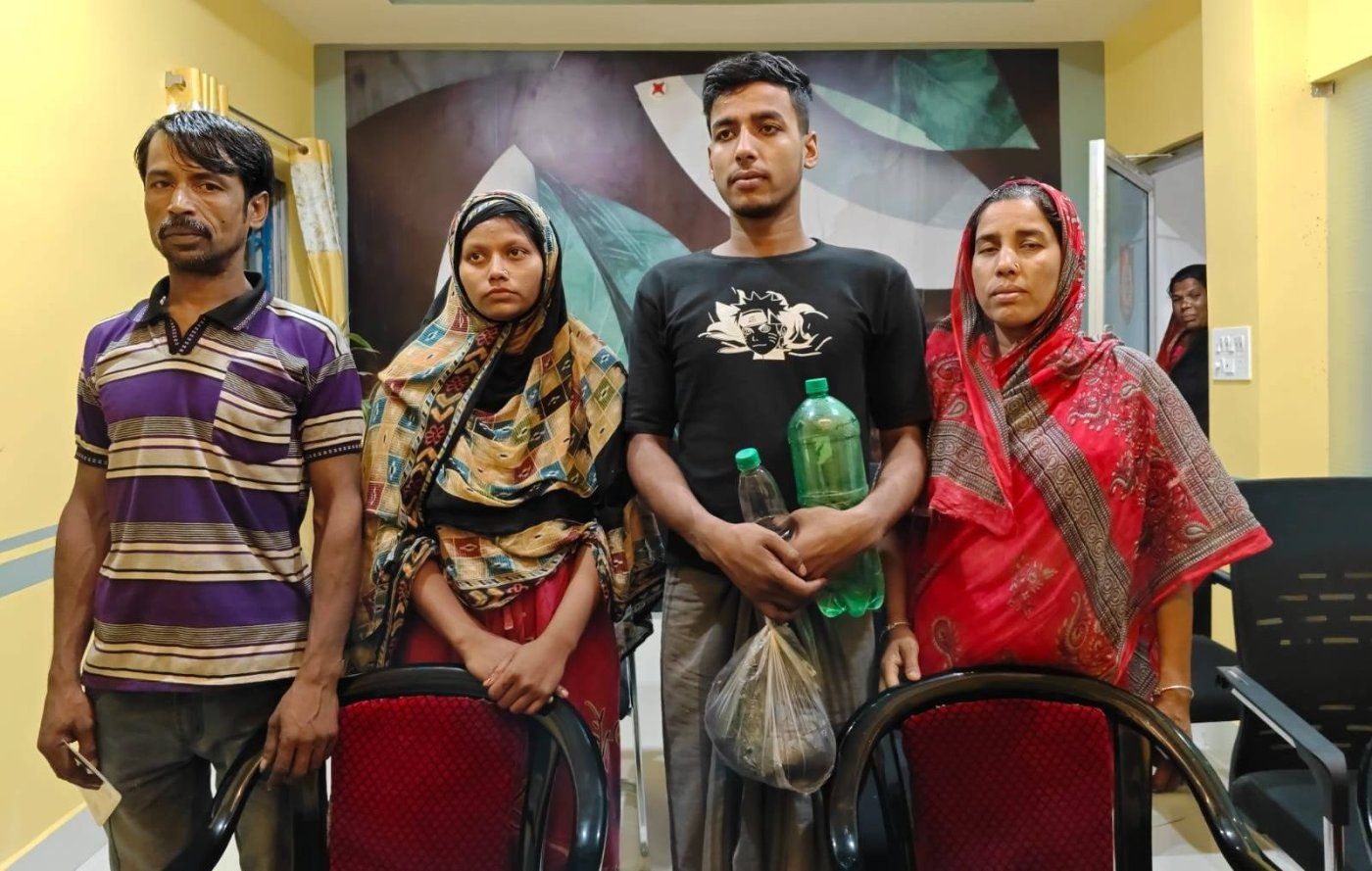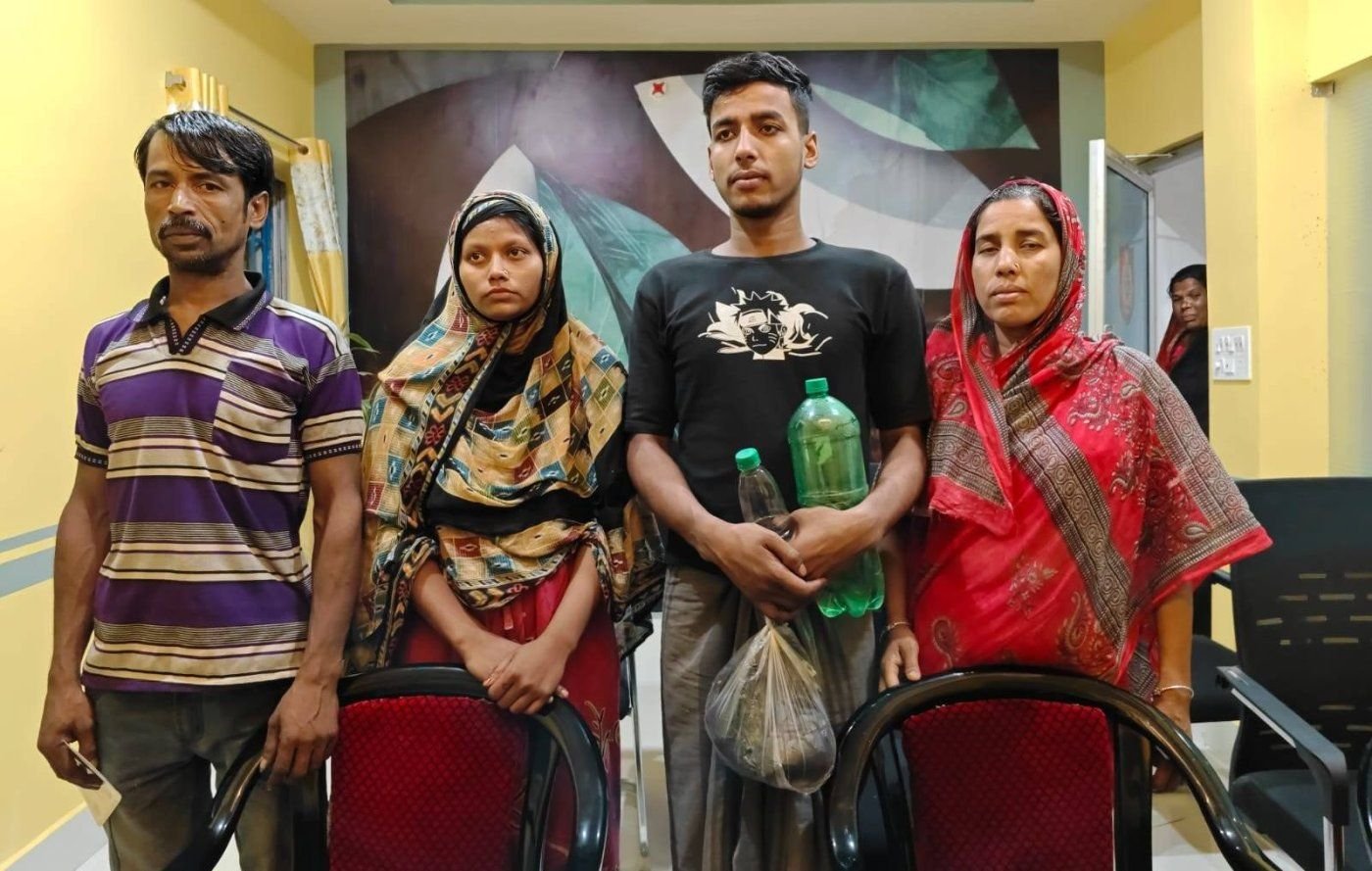
“Aap chronology samjhiye,” home minister Amit Shah said in West Bengal in 2019. Understand the chronology. First, a new citizenship law that excludes Muslims. Second, a National Register of Citizens (NRC) to purge “infiltrators”.
As Bengali-speaking Muslim workers are detained in the thousands in states run by the Bharatiya Janata Party (BJP), and as the Election Commission of India announces an urgent revision of electoral rolls in Bihar—the papers of 80 million will be checked at their homes before November 2025—so that, among other things, “foreign illegal immigrants” can be weeded out—panicked Muslims in West Bengal have started queueing up at block development offices to collect, correct or update records. West Bengal elections are next year.
Even spelling mismatches and errors in birth dates can land them in detention centres, or worse, removed from Indian territory. They—better than anyone—know the NRC has started.
On 25 June 2025, Prime Minister Narendra Modi’s government determinedly observed samvidhan hatya divas (Constitution murder day), marking 50 years since the declaration of Emergency by former Congress Prime Minister Indira Gandhi.
Modi and other top functionaries of government and the leaders of Modi’s BJP reminded India how democratic and constitutional rights were suspended during the 21 months of Emergency between 1975 and 1977.
In the eastern state of West Bengal on the same day, volunteers of the Parijayee Shramik Aikya Mancha (migrant workers’ unity forum or the PSAM) described to me how two telephone helpline numbers rang incessantly for a few hours, starting in the evening and continuing till late in the night, leaving them exhausted.
The first flood of calls came from the neighbouring state of Odisha, where police detained about 60 workers who had migrated from Malda district of northern West Bengal. They were detained at the Mahanga police station in Cuttack district of southeastern Odisha, where most worked on a building project and lived in makeshift tents next to the construction site.
Then came the news of detentions in Bhubaneshwar, Odisha’s capital. Seventeen residents of East Midnapore district in coastal West Bengal were being held at Bhubaneshwar’s Kharvel Nagar police station. Another six residents of Bengal’s Murshidabad district were detained by the Lakshmi Nagar police in the same city. The detainees included travelling salesmen and street vendors. Soon, PSAM volunteers learnt of the detention of 13 residents of West Bengal’s Birbhum district at Remuna police state in Odisha’s coastal district of Baleswar.
All these detainees were Bengali-speaking Muslims. As of the afternoon of 27 June, they were still in detention, with the police reportedly verifying their nationality. If the police are not satisfied with the identity documents the detained workers submit, they might visit the villages of the detainees for physical verification. Till then, the suspects will remain in detention.
The PSAM volunteers’ efforts to assist continued through the next day, as they spoke to families of detainees and gathered more information about their whereabouts. PSAM general secretary Asif Faruk, sounded tired and frustrated, as he recounted the experiences of the past four to five months, especially since the last week of April. Bengali-speaking Muslims, he said, had been detained in one state or the other almost every other day.
That Muslims have been a particular target of Modi’s government and BJP state governments is no longer in question.
From a discriminatory citizenship law, anti-conversion laws, cow vigilantism, food bans and mob lynching to restrictions on interfaith marriage, there are many ways in which Muslims have been made to feel like second-class citizens—even though India has not been officially declared as a Hindu Rashtra or nation.
But the Modi government appears to have little use for such declarations.
Those who saw hope in the fact that the union government had not formally announced what has for long been dreaded by Muslims, a nationwide citizenship screening drive on the lines of Assam’s National Register of Citizens (NRC), should abandon that hope.
The NRC has de facto started across India’s BJP-ruled states, targeting mainly Muslims, as the BJP had clearly promised during Modi’s 2014 prime ministerial run and repeatedly reiterated. Bengali-speaking Muslims form the first batch of those chosen for nationality verification.
Article 14 reported in May 2025 how Bengali-speaking Muslims were being indiscriminately detained for days in different BJP-ruled states—Gujarat, Rajasthan, Delhi, Uttar Pradesh, Maharashtra, Odisha and Assam. Earlier this week, we also reported how the Maharashtra police handed over seven West Bengal residents to the Border Security Force (BSF), who forced them into Bangladesh, allegedly at gunpoint. They were brought back after the West Bengal police intervened.
India’s detentions and deportations mirror efforts by Donald Trump’s government in the US, where thousands are picked off the streets, at homes and at workplaces. Among those deported have been planeloads of Indians.
India started its anti-immigrant detentions focussing on Bengali-speaking Muslims, who in language and dress are often impossible to distinguish from Bengali-speaking Muslims from Bangladesh.
India’s drive unfolded on a larger scale in the northeastern state of Assam, from where several dozen Indians were pushed out of the Indian border but were brought back after a few days, as Bangladesh border guards refused to let them enter Bangladesh. Many of them had been declared as ‘foreigners’ by Foreigners Tribunals, quasi-judicial bodies in Assam, even though their petitions were pending in the Supreme Court.
The nation-wide drive to find and deport illegal Bangladeshi immigrants picked up pace in February 2025, when home minister Shah ordered the Delhi police to crack down on illegal immigrants from Bangladesh and Myanmar.
Bengali-speaking Muslims form roughly 90% of Bangladesh’s population. They make up more than a fourth and roughly a third of the population of West Bengal and Assam, respectively, states that border that country.
The effort to question the citizenship of Muslims began 11 years ago when Modi introduced a new citizenship policy to India’s political discourse. In February 2014, while addressing a public rally in Assam’s Silchar, Modi, then the BJP’s prime ministerial candidate, argued that India had a responsibility toward Hindus “who are harassed and suffer in other countries”. He also said that another group of migrants, “brought in” and settled in India as a part of “vote-bank politics” would be deported.
His views on Hindu migrants and Muslim migrants were clear: all Bangladeshi Hindu migrants were “refugees” and Muslims “infiltrators”.
Shah, who was then the BJP president, clarified the procedure in an April 2019 address in Kolkata, the West Bengal capital, during the last leg of the parliamentary election campaign.
“First, the Citizenship Amendment Bill (CAB) will be brought in,” said Shah. “All refugees will be given citizenship. The NRC will be carried out thereafter. Therefore, the refugees need not worry.” Infiltrators, he said, should worry.
Explaining his now-famous “chronology”, Shah said, “The CAB comes first and then comes the NRC. And the NRC wouldn’t be for Bengal alone; it will be for the whole country.”
The Citizenship Amendment Act (CAA) was enacted in 2019 and the CAA was notified ahead of the 2024 parliamentary election. The law’s rules contain subjective biases and preferential treatment, in the form of waivers if Hindu citizenship-seekers fall short of required documents.
Since Modi’s return to power for a third consecutive term in June 2024, HIndu fundamentalists have stepped up anti-Bangladeshi rhetoric (here, here, here and here). In August 2024, Odisha’s newly elected BJP government said that it would conduct a state-wide survey to identify illegal migrants. The Jharkhand assembly election in October-November 2024 saw intense campaigns focussed on “Bangladeshi infiltrators”, a not-subtle reference to Jharkhand’s indigenous Bengali-speaking Muslims.
This year, the anti-Bangladeshi drive intensified after the 22 April Pahalgam terror attack in Jammu & Kashmir. Police forces who detain Muslims refuse to accept government-issued identity documents, such as Aadhaar, PAN or voter IDs, arguing that they could be easily faked.
They ask for more “solid” proof, such as birth certificates, land records, school-leaving certificates, the names of detainees or their parents on pre-1971 voter lists or residential certificates issued by block development officers or sub-divisional officers—certificates issued only after physical verification by the police. These are documents that many families—most from marginalised backgrounds—do not possess.
As this harassment unfolded, the Election Commission made a seemingly unrelated announcement on 24 June: a “special intensive revision” of the electoral rolls ahead of the Bihar assembly election scheduled later this year.
The details of that announcement reveal how it aligns with the BJP’s declared aims.
Removing names of “foreign illegal immigrants” is cited as a reason for the revision. The others: rapid urbanisation, frequent migration, young citizens becoming eligible to vote and non-reporting of deaths. Officers from voting booths would conduct house-to-house surveys, said the Election Commission. Every person whose name was added to the voter list after 2003 would have to produce fresh proof of citizenship.
Dipankar Bhattacharya, the general secretary of the Communist Party of India (Marxist-Leninist) Liberation, a Bihar-based party, pointed out that in terms of its scale and nature, this special intensive revision will be similar to the NRC exercise in Assam.
While the updation of NRC in Assam—an exercise ordered by the Supreme Court in 2013—covered 33 million people over six years, the Bihar exercise aims to cover 80 million people in just a month during a busy agriculture season, Bhattacharya said, alleging that it risked large-scale disenfranchisement if the people did not papers ready.
The Congress, India’s main opposition party, alleged in a social media post that those born before 1 July 1987 would be asked for documentary proof of their birth or place of birth; voters born between 1 July 1987 and 2 December 2004 must provide valid documents of at least one parent along with their own, proving Indian citizenship; and those born after 2 December 2004 would need to submit papers for themselves and their parents.
Since the West Bengal assembly elections are due in mid-2026, the Election Commission may order a similar revision, the state’s politicians suspect. “Bihar is a pretext, Bengal is the real target,” West Bengal chief minister Mamata Banerjee alleged on 26 June. “Is this NRC? Please clarify,” she said. “Where will poor people get so many documents from?”
(Snigdhendu Bhattacharya is a Kolkata-based author and independent journalist, who writes on politics, history, human rights, culture, environment and climate change.)
Get exclusive access to new databases, expert analyses, weekly newsletters, book excerpts and new ideas on democracy, law and society in India. Subscribe to Article 14.

